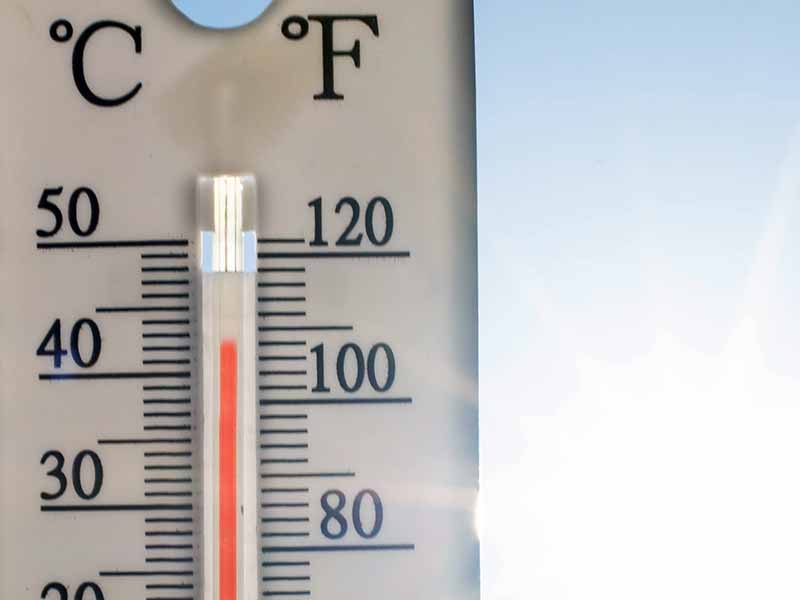We’ve all felt the scorching heat of summer on our skin, but have you ever wondered how that same heat affects your vehicle’s tires? If you’ve ever been puzzled by why your tire pressure seems to fluctuate with the changing seasons or after a long drive, you’re not alone. Dive in to discover the intriguing relationship between tire pressure and temperature.
Does Tire Pressure Increase With Heat?
Yes, tire pressure does increase with heat. As temperatures rise, the air inside tires expands, leading to increased pressure. While this increase can be significant, regular monthly air pressure checks and heeding TPMS alerts usually suffice to address it.
In this article, we’ll explore the science behind tire pressure and temperature, understand the effects of driving and seasonal changes on tire pressure, and share expert insights on maintaining optimal tire pressure for safe and efficient driving.
Let’s take a closer look.
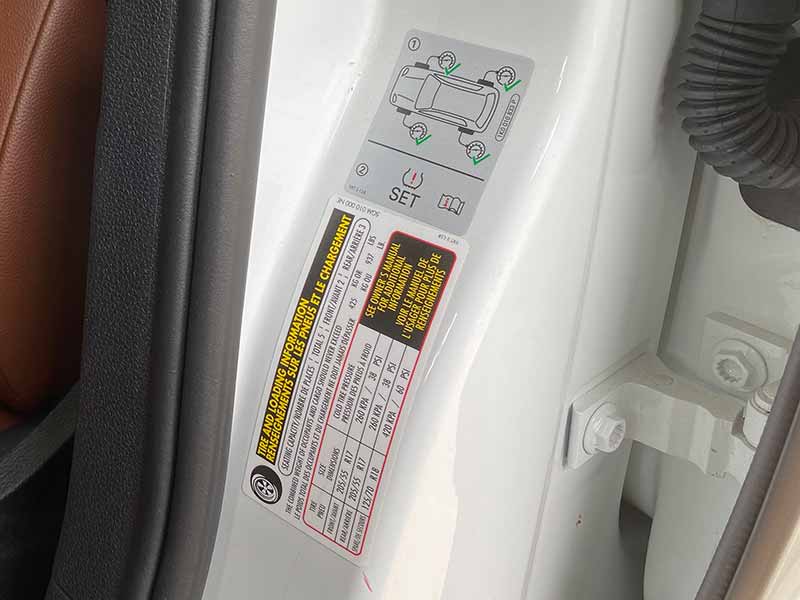
The Science Behind Tire Pressure and Temperature
Maintaining the right tire pressure is crucial for the safety and performance of your vehicle. But did you know that temperature plays a significant role in your tire pressure? Let’s dive into the science behind how temperature impacts the air pressure in your tires.
How Temperature Affects Air in Tires
- Heat Expands, Cold Contracts: Air is like many materials – it expands when it’s hot and contracts when it’s cold. When the air inside a tire heats up, it takes up more space, causing the pressure to increase. Conversely, when the air cools, it takes up less space, and the pressure drops.
- Direct Sunlight Increases Heat: Parking or driving in direct sunlight can make your tires hotter, especially in the summer. This heat increases the air pressure inside the tire. It’s not just the outside temperature but also the sun’s rays that contribute to this change.
Real-World Impact on Your Tires
- Daily Temperature Fluctuations: Even over a single day, the change from the cool morning to a hot afternoon can cause a noticeable difference in tire pressure. This is why you might find your tire pressure warning light comes on during a hot afternoon, even though everything seemed fine in the morning.
- Seasonal Changes Matter: Over the year, the shift from summer to winter can have a big impact. You might notice your tires seem flatter in the cold winter months. It’s not that they’re leaking air, but the colder temperature means the air inside them is taking up less space.

Effects of Driving on Tire Pressure
Driving isn’t just about getting from one place to another. Every time you hit the road, various factors come into play that can change the pressure in your tires. Let’s explore how driving affects tire pressure and what you can do to ensure your tires stay in top shape.
The Role of Friction
- Heat from the Road: As tires roll on the road, they create friction. This friction generates heat, which can increase the air pressure inside the tire. The longer and faster you drive, the hotter your tires can get.
- Tire Type Matters: Some tires are designed to handle heat better than others. For example, high-performance tires might heat up faster because they grip the road more tightly.
Weight and Load
- Carrying Heavy Loads: If you’re carrying a lot of weight in your vehicle, like luggage or many passengers, it puts extra stress on your tires. This added weight can cause an increase in tire pressure.
- Tire Position: The weight isn’t distributed evenly in all vehicles. For instance, front tires might carry more weight in some cars because of the engine’s position. This can lead to different pressure levels in front and rear tires.
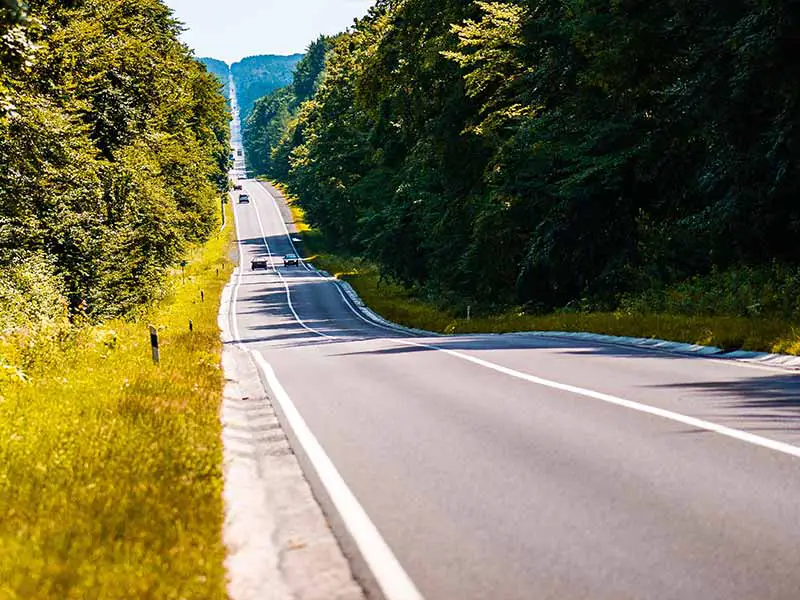
Seasonal Tire Pressure Adjustments
As the seasons change, so do the conditions of the roads and the air around us. These changes can have a direct impact on your tires. Let’s understand how different seasons affect tire pressure and what you can do to ensure your tires are always at their best.
Summer vs. Winter: The Big Differences
- Hotter Temperatures in Summer: Summer brings with it hot temperatures, which can increase the air pressure inside your tires. This is because, as we learned earlier, air expands with heat. So, during the hotter months, your tires might have higher pressure than usual.
- Colder Temperatures in Winter: In contrast, winter’s cold can cause the air inside your tires to contract, leading to decreased pressure. This is why many drivers notice their tires looking a bit flatter during the colder months.
The Impact of Seasonal Changes
- Tire Performance: The right tire pressure is crucial for optimal tire performance. Overinflated tires in summer can reduce grip, while underinflated tires in winter can wear out faster.
- Fuel Efficiency: Tire pressure can also affect your vehicle’s fuel efficiency. Properly inflated tires ensure better fuel mileage, saving you money at the pump.
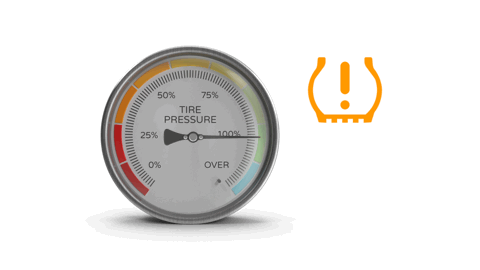
Importance of Monitoring Tire Pressure
Your tires are a crucial part of your vehicle, and their pressure plays a significant role in how they perform. Monitoring and maintaining the right tire pressure is not just about prolonging the life of your tires but also about ensuring your safety on the road. Let’s delve into why keeping an eye on tire pressure is so essential.
The Benefits of Proper Tire Pressure
- Improved Safety: Tires with the correct pressure provide better grip on the road, reducing the risk of accidents.
- Longer Tire Life: Properly inflated tires wear out more evenly and last longer, saving you money in the long run.
- Better Fuel Efficiency: When your tires are at the right pressure, your vehicle doesn’t have to work as hard, leading to better fuel consumption.
The Risks of Neglecting Tire Pressure
- Uneven Wear: Tires that are not properly inflated can wear out unevenly. This means some parts might become thin while others remain thick, leading to a bumpy ride and reduced tire life.
- Increased Chance of Blowouts: As we’ve discussed earlier, incorrect tire pressure, especially overinflation, can lead to tire blowouts, which are both dangerous and costly.
- Reduced Grip on the Road: Underinflated or overinflated tires might not grip the road as they should, increasing the risk of skidding or accidents.
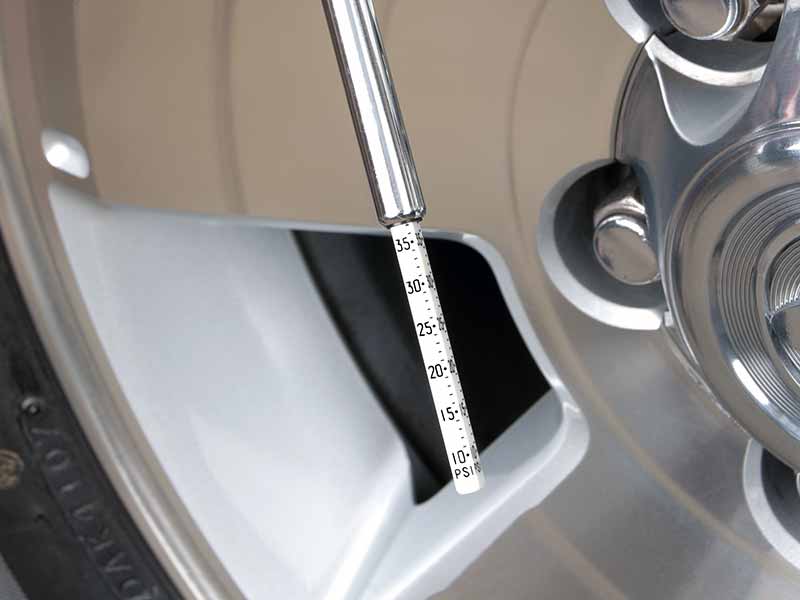
From My Experience
Here’s a recap of some of the most crucial points based on my experience:
- Regular Checks are Essential: Whether it’s the changing seasons or the effects of driving, tire pressure can fluctuate. Regularly checking your tire pressure using a reliable gauge can prevent many issues down the road.
- Morning is the Best Time: Checking your tire pressure in the early morning, especially during hot weather, gives the most accurate reading. This is because the tires haven’t been exposed to the day’s heat or long drives yet.
- Invest in the Right Tools: A good tire pressure gauge is a small investment that can make a significant difference. Additionally, if your vehicle comes with a tire pressure monitoring system, pay attention to its alerts.
- Drive with Care: The way you drive can influence the life and performance of your tires. Sudden accelerations, sharp turns, or driving at very high speeds can stress your tires, especially in extreme temperatures.
- Consider Specialized Tires: Depending on where you live and the conditions you drive in, specialized tires like summer tires might be a worthwhile investment. They’re designed to handle specific conditions better than all-season tires.
- Stay Proactive: Whether it’s preparing for a long summer road trip or adjusting to a new season, being proactive about tire care can save you from potential problems. Regular inspections, beyond just checking the pressure, can help spot issues like wear and tear or damage early on.
Resources
Below are some links you may find helpful when learning about tires
- What to know about summer driving and tire pressure – Firestone
- How does temperature change affect tire air pressure – Tire Rack
Final Thoughts
As we’ve learned, factors like heat, driving habits, and seasonal changes can significantly impact tire pressure.
Regularly monitoring and adjusting your tire pressure ensures not only a longer life for your tires but also a safer and more fuel-efficient driving experience.
With the right knowledge and a bit of routine care, you can ensure your tires are always in top condition, no matter the weather or road conditions.
Good luck and happy motoring.
